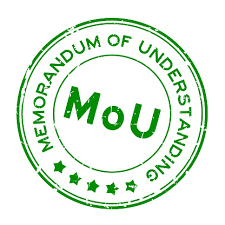In this issue
- Delta Dental
- Divisive Concepts Bills at the Statehouse
- Administrative Salaries Arms Race
- MOU Vaccine Mandate
![]() During the last enrollment period, UC began using Delta Dental instead of Anthem to administer our dental plan. We’ve received a few anecdotal complaints about Delta Dental, and we wanted to clarify what UC’s obligations are and aren’t in regards to the dental plan. UC is free to switch administrators of the health or dental plan as long as the new plan offers the same level of coverage. The deductible, the co-pays, and the percentage covered should be the same as well as the types of procedures covered. The list of preferred providers (PPO) can differ from plan to plan, and UC is under no obligation to select plans with similar lists of providers. If your dentist is not a PPO for Delta, you may still see them, but you will only be reimbursed for the out-of-network rate, which may be less than what the dentist charges and you are responsible for the difference. For more details on coverage, please see the 2020 Summary of Dental Plan Benefits and the 2021 Summary of Dental Plan Benefits. The Budget and Compensation committee is tracking complaints about Delta Dental, and you can email Amber Peplow at amber.peplow@uc.edu to register a complaint.
During the last enrollment period, UC began using Delta Dental instead of Anthem to administer our dental plan. We’ve received a few anecdotal complaints about Delta Dental, and we wanted to clarify what UC’s obligations are and aren’t in regards to the dental plan. UC is free to switch administrators of the health or dental plan as long as the new plan offers the same level of coverage. The deductible, the co-pays, and the percentage covered should be the same as well as the types of procedures covered. The list of preferred providers (PPO) can differ from plan to plan, and UC is under no obligation to select plans with similar lists of providers. If your dentist is not a PPO for Delta, you may still see them, but you will only be reimbursed for the out-of-network rate, which may be less than what the dentist charges and you are responsible for the difference. For more details on coverage, please see the 2020 Summary of Dental Plan Benefits and the 2021 Summary of Dental Plan Benefits. The Budget and Compensation committee is tracking complaints about Delta Dental, and you can email Amber Peplow at amber.peplow@uc.edu to register a complaint.
“Divisive Concepts” Bills at the State House
At the Chapter Meeting on September 9th, members voted unanimously to endorse #TruthBeTold Higher Education working group’s efforts to oppose House Bills 322 and 327, as well as similar legislation in other state and local governments. You can view the slides from Emily Houh and Steve Mockabee’s presentation on these bills here: https://aaupuc.org/
In brief, HB 322 and 327 would prohibit the discussion of “divisive concepts” in classrooms. HB 322 is directed primarily at K-12, while HB 327 has a much broader focus, including Higher Ed. HB 327 is a clear threat to academic freedom, as it restricts faculty from teaching as they see fit based on their expertise. The bill would also threaten the employment of faculty who do not adhere to the bill’s restrictions and would impose draconian cuts to state funding of a college or university where a faculty member violates the bill’s provisions.
These bills are not yet law. You can help maintain the integrity of education in Ohio. Here are a few actions you can take:
- Submit testimony to oppose bills – see Honesty for Ohio Education how-to and action resources at all levels – OH Statehouse, State Board of Ed, and Local School Boards & Districts
- Sign the “Save Ohio Higher Ed” (SOHE) Solidarity Pledge [to sign, scroll to bottom of page]
- Talk to faculty friends and colleagues who might not be obviously or immediately interested
- Check/request action from your various disciplinary professional associations
- Support our K-12 educator colleagues! → See BLM At School for ideas
- National #TeachTruth Day of Action – kicks of 2021-22 Year of Purpose
- AAPF #TruthBeTold Higher Ed Working Group – email houhe@ucmail.uc.edu
- Model faculty senate resolution – forthcoming
- Teach-in – Oct 14 “National #TeachTruth Day of Action,” commemorating George Floyd’s birthday
- Endorse AAPF #TBT Higher Ed Working Group’s work
A first round of testimony on the bills took place on Wednesday, 9/22, during a session of the House State and Local Government Committee, and additional hearings are planned. Stay tuned for updates.
 In case you missed it:
In case you missed it:
Rising provost salaries attributable to ‘arms race’ in higher education, faculty say
In an article by Quinlan Bentley, The News Record examines salaries for top administrators at the University of Cincinnati. > Click HERE to read the full article
 MOU Vaccine Mandate
MOU Vaccine Mandate
The AAUP-UC Chapter and UC have agreed to a basic Memorandum of Understanding (MOU) regarding the effects of UC’s recently announced COVID-19 vaccine mandate. A copy of the MOU is available here.
For those unfamiliar with MOUs, they are frequently necessary when new issues or unforeseen circumstances arise in the middle of a contract term. For example, in 2020 the AAUP and UC agreed to an MOU in 2020 regarding the impact of the COVID pandemic on the reappointment and tenure process. Unless an MOU results in significant changes to the compensation or benefits of Bargaining Unit Faculty Members, they are approved by the Chapter’s Executive Council.
The University did not approach the AAUP to negotiate whether or not it would implement a vaccine mandate. Whether or not a public employer is required to negotiate with its employees’ unions over a vaccine mandate is currently a hotly contested legal issue. Some states, including California, have ruled that the employer is not required to bargain over the issue. Other states, including New York, have ruled that the employer is required to bargain. The UC Administration did, however, work closely with Faculty Senate to survey all faculty to gauge support for a vaccine mandate. That survey showed significant support for the mandate. In addition, the Administration approached the AAUP to negotiate the effects of the mandate, which resulted in the current MOU.
The MOU itself indicates that UC will make both vaccines and testing available to members of the campus community. It also states that UC will provide a medical and non-medical exemption form and process for agreeing to such exemptions. Decisions by the Administration on exemptions are final and not grievable. Finally, the MOU makes clear that faculty who decline to provide proof of vaccination or fail to complete testing if they receive an exemption could be subject to discipline, but are entitled to the due process protections outlined in Article 9 of the Collective Bargaining Agreement.
In August, the AAUP National issued a statement urging university administrations to prioritize health and safety as campuses reopen (https://www.aaup.org/news/aaup-urges-administrations-prioritize-health-and-safety-campuses-reopen#.YU3fhi-B1qs). That statement made clear the AAUP’s position on vaccinations and the science supporting them:
“The way forward is to vaccinate as many people as possible, follow masking guidance, and provide regular testing. Institutions of higher education exist to serve the common good. As sites of knowledge creation and scientific discovery, our colleges and universities are uniquely situated to provide leadership by amplifying and promoting trust in CDC guidelines and putting in place sound public health policies and practices, which should include making vaccination easy and convenient for all members of the campus community.”
The AAUP-UC Chapter supports this statement, and encourages everyone to do their part in these historically challenging times.

